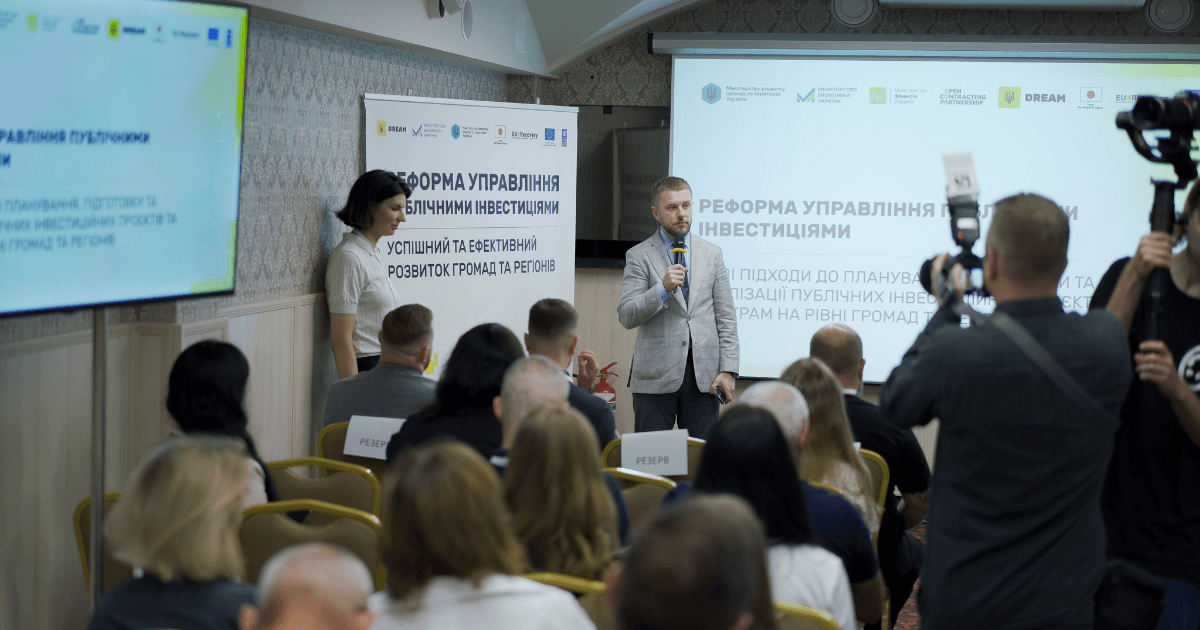PIM Reform: Presentation for Communities and Regions Representatives took Place in Chernihiv
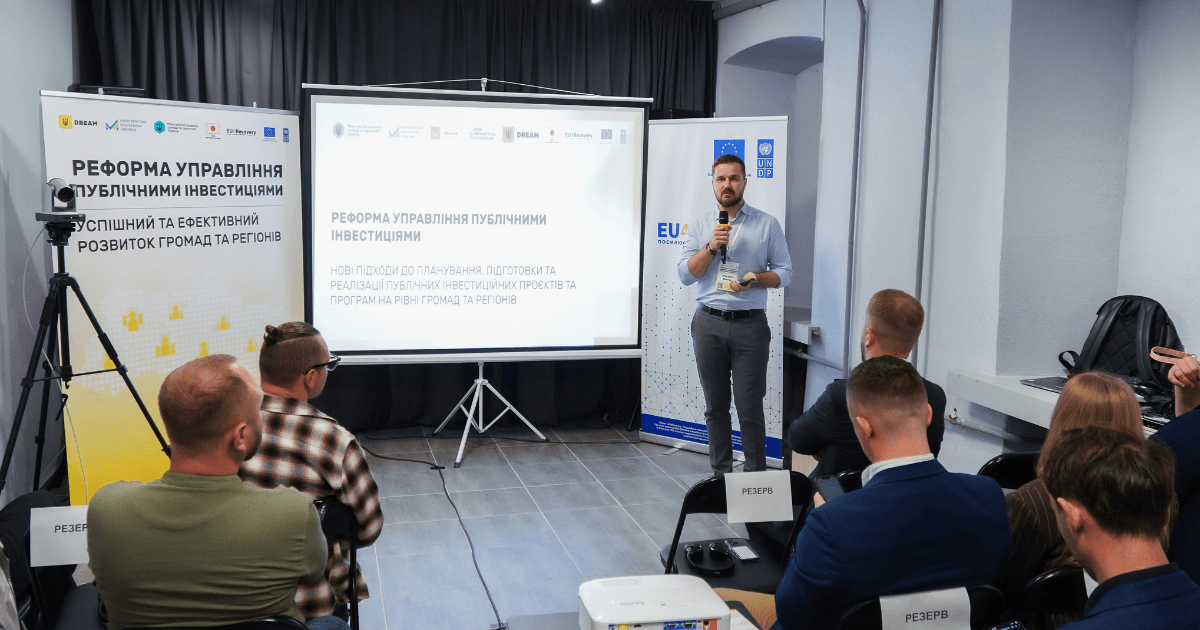
An event aimed at clarifying the essence of the Public Investment Management (PIM) reform and the specifics of its practical implementation for regional and local authorities took place in Chernihiv.
This was the first in a series of regional events that brought together over 300 participants, including representatives of the Ministry for Development of Communities and Territories of Ukraine, the Verkhovna Rada of Ukraine, Sumy and Chernihiv Regional State Administrations, communities from Sumy and Chernihiv regions, the DREAM Project Office, civil society, the expert community, and international partners.
Participants had the opportunity to engage in discussions about the key stages of implementing the PIM reform, including the development of a Medium-Term Plan of Priority Public Investments (MIP), methodologies for preparing public investment projects and programs, the creation of sectoral portfolios, and a Single Project Pipeline at the national, regional, and local levels.
According to Deputy Minister for Development of Communities and Territories Oleksii Riabykin, the foundation of the reform is strategic and medium-term planning. The reform introduces changes, including the transformation and unification of planning processes, the identification of investment directions, and the determination of development priorities for communities and regions.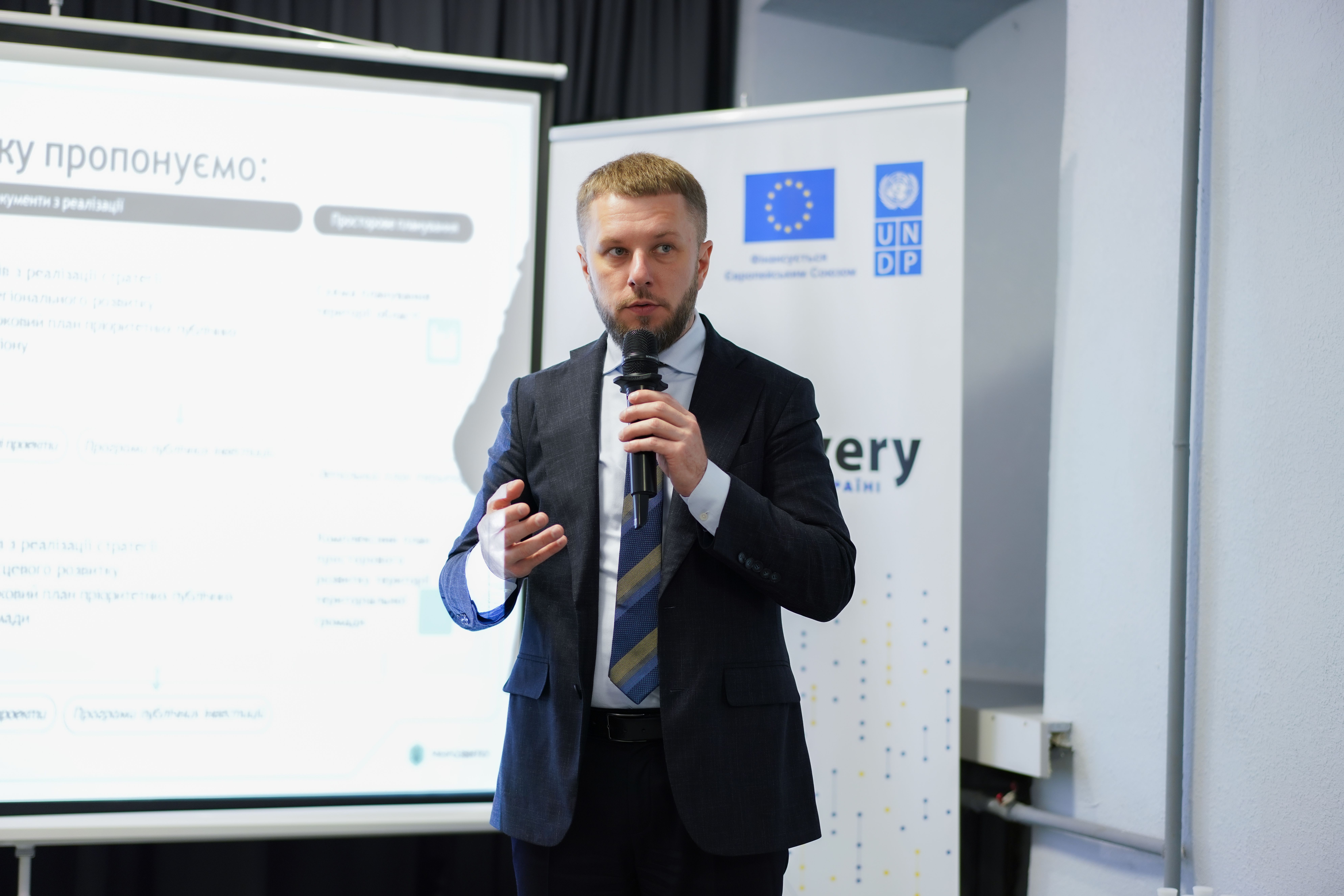
"Our task today is to learn how to align strategies with financial capabilities. First and foremost, this reform is focused on people — they need to understand how public funds are spent and be able to influence processes in their communities. Strategic planning is crucial not only for the effective allocation of budgetary funds but also for attracting international investments. International partners want to know how our communities and regions plan to develop, what our priorities are, and what we aim to achieve. That is why, within the reform, we are working to provide local authorities with the tools needed to access European structural funds so that development is balanced and reaches all areas of the country," said Oleksii Riabykin.
Starting in July, communities and regions will begin preparing their Medium-Term Priority Public Investment Plans (MIPs), followed by the development of projects and programs in September. By December, they will form Single Project Pipelines. In this context, regions and communities must prepare for the practical implementation of new approaches to managing public investments.
As noted by Vitalii Bezgin, Member of Parliament of Ukraine and Chair of the Subcommittee on Administrative-Territorial Structure and Local Self-Government of the Verkhovna Rada Committee on State Building, Local Governance, Regional Development, and Urban Planning, it is vital to understand that after the war, there will be a significant shortage of funds for community recovery. Therefore, it is essential to lay the groundwork for attracting international financing now—including through the PIM reform.
"When we talk about public investments, we mean not only our internal resources but also the opportunity to attract external investments. That's why it is crucial to teach local actors how to properly prepare investment projects that will also be attractive to international investors," said Vitalii Bezgin.
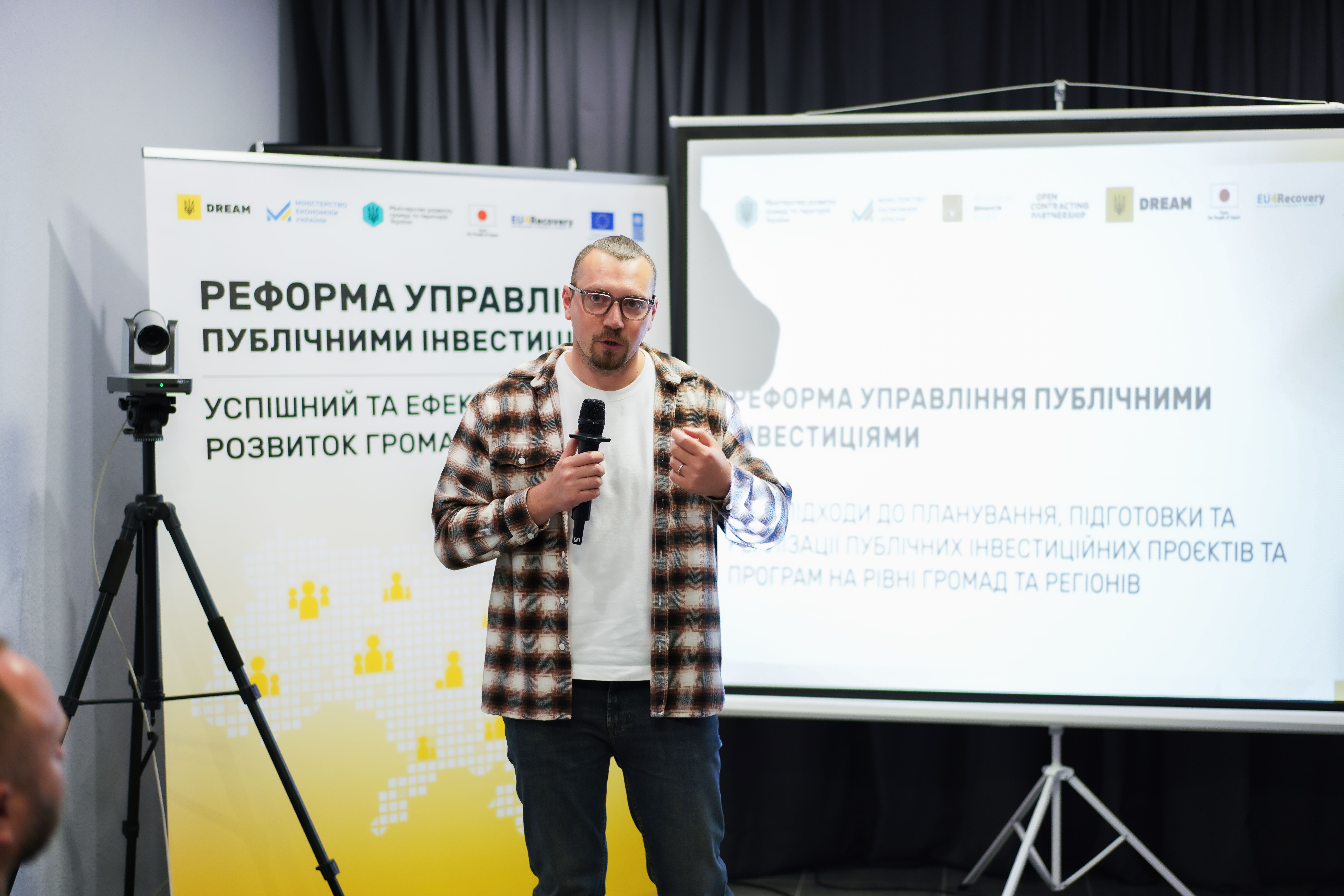
The DREAM ecosystem, as part of the Unified Information System, serves as the digital foundation for public investment management reform. DREAM functions as a "single window" for public investment management. All stages—from the formation of PPIs and the preparation of projects and programs at the national, regional, and community levels to the development of sectoral portfolios and the Unified Project Portfolio—are facilitated within this ecosystem. Clarifying the logic behind the reform and strengthening the capacity of project initiators are among the most important goals of the reform's implementation.
"We will make every effort to explain the logic of the reform to all involved specialists. The DREAM Project Office will provide full support. Shortly, step-by-step methodological recommendations for communities will be approved. The reform will be embedded in the system through detailed guidelines and examples. DREAM will be your assistant in navigating the world of public investment management reform," said Viktor Nestulia, Head of the DREAM Project Office.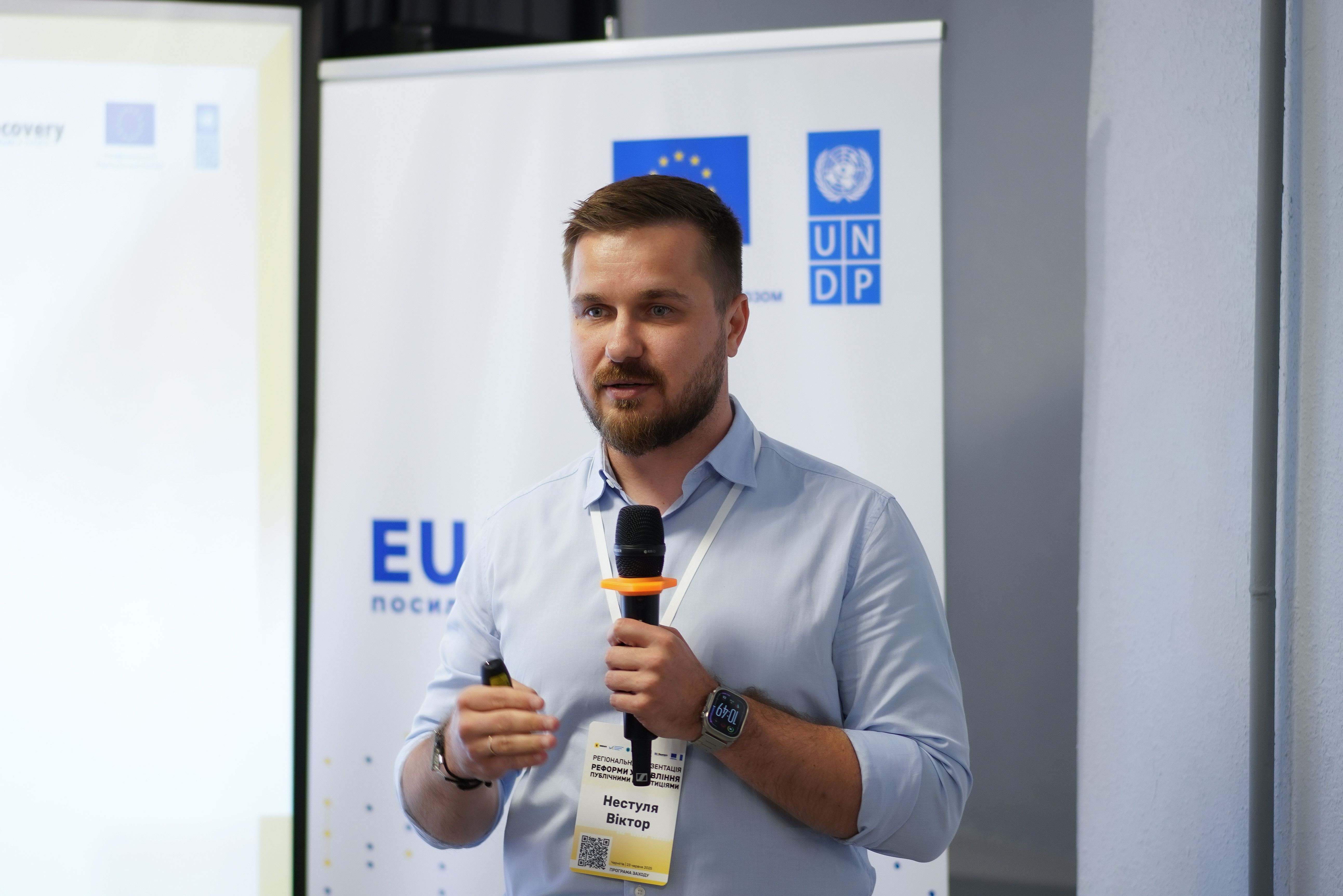
During the event, special attention was given to the institutional capacity of communities and regions. Yana Krasnopolska, Training Manager at the DREAM Academy, emphasized the importance of establishing local investment councils, public investment allocation commissions, and dedicated departments for managing public investments.
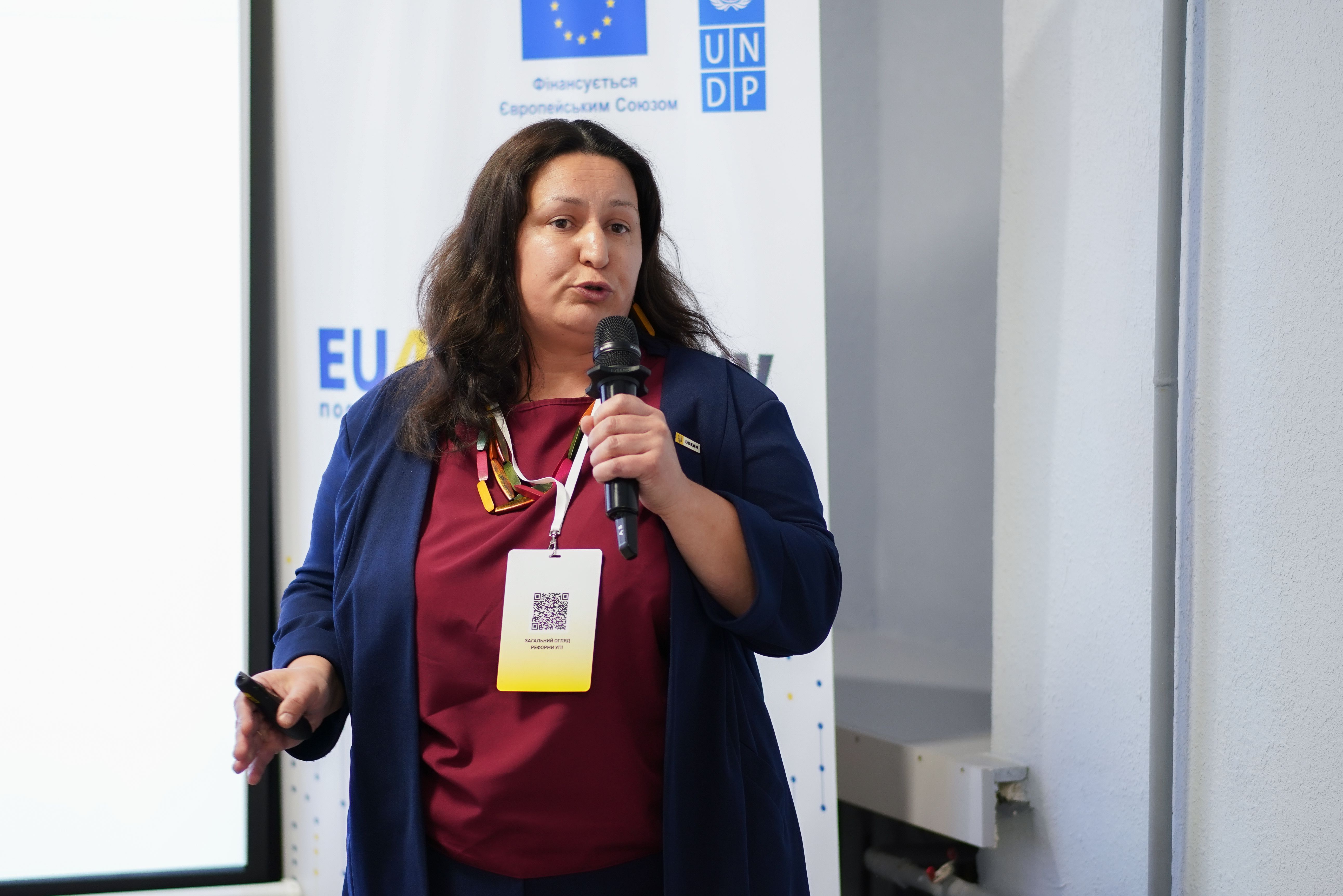
She also noted that in February this year, an Interagency Working Group on the preparation of public investment projects was established, including representatives from the Ministry for Community Development, the Ministry of Economy, and the Ministry of Finance.
The PPU (Project Preparation Unit) facilitates better project preparation and financing at all levels. To address challenges related to limited institutional capacity and financing for project and program preparation, the Government is collaborating with international financial institutions, including the European Investment Bank (EIB), the European Bank for Reconstruction and Development (EBRD), and the World Bank Group, to develop a Framework Program for Project Preparation in Ukraine. This structure will coordinate project preparation through the Project Preparation Facility (PPF), enabling the development of projects that meet quality, environmental, and social standards.
Ana Lucatela, Head of Regional Recovery at UNDP Ukraine, emphasized the importance of collaboration among the Government, parliament, regional administrations, and communities—with support from the international community—for the successful implementation of key reforms in Ukraine. UNDP and other international partners emphasize the central role of communities in the recovery process, including their ability to gather transparent and verifiable data on recovery needs. Strategic planning is also a key priority for donors. Therefore, communities and regions must invest in training and preparing specialists to enhance their institutional capacity.
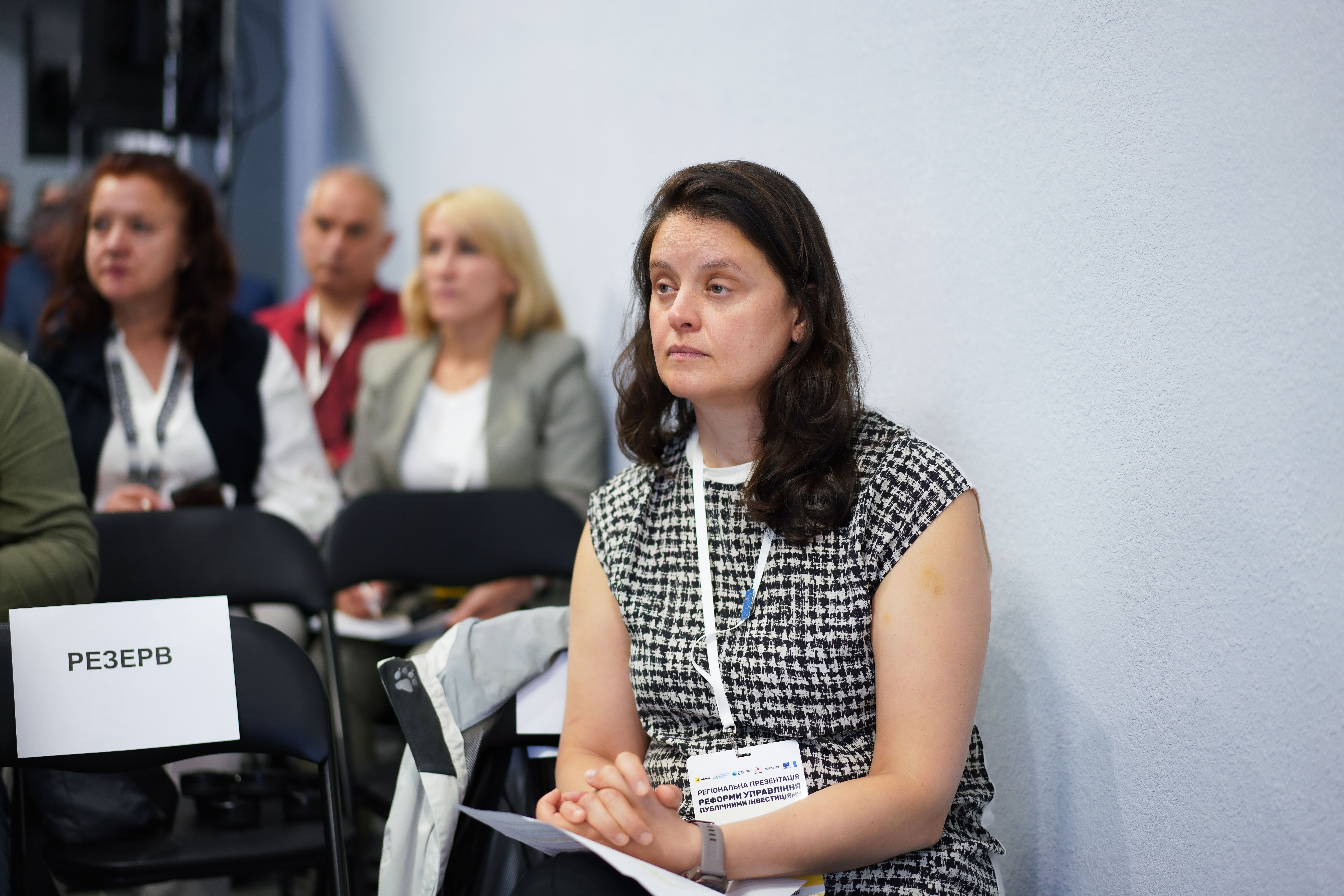
The event was jointly organized by the Ministry for Development of Communities and Territories Development of Ukraine, the DREAM Project Office, and the Open Contracting Partnership, with support from the United Nations Development Programme (UNDP) in Ukraine, as part of the flagship EU-UNDP partnership "EU4Recovery – Empowering Communities in Ukraine," and the project "Support to Inclusive Recovery for Resilience and Human Security in Ukraine," funded by the Government of Japan.
Such events aim to strengthen the capacity of communities, prepare them for the next steps in working with public investments, and gather feedback and suggestions to enhance the implementation process of the reform. It is planned that the regional tour will cover the entire country of Ukraine. The next events for regional administrations and communities will be held in Dnipro and Poltava.
To learn more about the reform, follow this link: https://bit.ly/46auV5p
